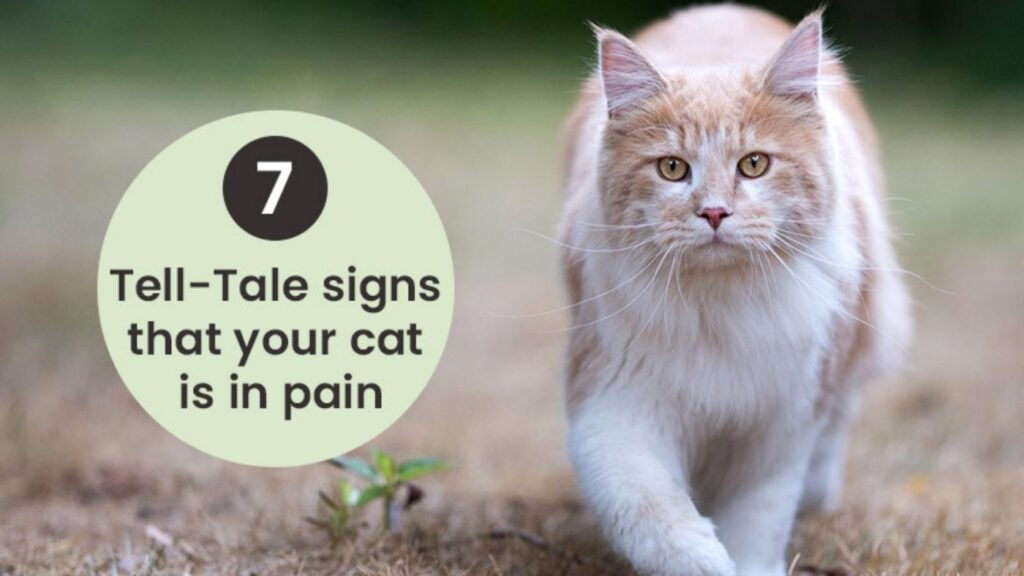Did you know that cats are well-known as masters of hiding their pain? That is, for a reason. They can hide their pain very well because showing signs of weakness makes them more vulnerable to threats. Therefore, overtime, cats have adapted a strong natural instinct to cover-up their pain.
This is why cat owners may often miss the obvious signs of pain in their cats or do not notice it until they become more serious. And by the time you notice those symptoms, your cat might already be suffering.
Signs of pain in cats?
Some common signs of pain in cats include increased aggression, changes in grooming habits, awkward posture, lethargy, excessive vocalization, and more.
Increased Aggression:
The most common sign that your cat is in pain or going through some illness is when she starts behaving aggressively without any apparent reason. A cat is more likely to hiss, growl, scratch or bite upon approaching if she is in pain. Such episodes of increased irritability are more likely to occur, especially when touched on the painful areas.
Changes in grooming habits:
Cats are meticulous cleaners and tend to keep themselves clean, which is something most cat-parents take pride in. But if you notice that your cat is not grooming herself or is excessively grooming herself, something is wrong. Also, if she is continuously licking the same part, that could be a sign that she is in pain and is trying to sooth that part. So if you find your cat in a disheveled appearance, don’t ignore it.
Awkward posture:
Is your cat having trouble getting up? Is she hunched-over, or is she standing taller? Such symptoms may indicate conditions like arthritis, dysplasia or muscle pain. During such conditions, a cat’s legs may appear swollen or she may attempt to stand with her rear legs first, extending the front legs out.
Changes in habits:
Even though cats are masters of disguise, they can exhibit some easily noticeable changes in their habits when they are in pain. You may notice that her eating or sleeping habits are not consistent anymore. Your cat might also start breathing fast while sleeping. Another common sign is if she starts to eat less and sleep more or less.
You should also check if there are any litter-box changes. If you notice any such changes in your cat, it is a cause of concern, so you should schedule an appointment with your veterinarian right away.
Lethargy:
As cats naturally sleep for more hours, it may be difficult for you to note the symptoms of lethargy. Lethargy is an indication that something is medically wrong with your cat. If you notice symptoms of lethargy like abnormal sleepiness, low energy, and lack of interest, take your cat to a vet. Lethargy may cause a lot of issues in cats, from something common like minor infection to serious issues like diabetes and anemia.
Excessive Vocalization:
Just like humans, cats can express their pain through vocalization. If you notice that your cat is meowing, groaning, howling, hissing, or screeching more than she usually does, your vet may refer to this condition as feline vocalization. Excessive vocalization may be a sign that your cat is in pain. It may indicate symptoms like chronic illnesses, ageing or anxiety, so it is better to get your vet involved.
Limping:
If your cat is facing difficulties with walking or is walking with an impaired gait, usually favoring one leg over the other, it is an obvious sign that she’s in pain. Limping or stumbling is not normal for pets. Sometimes, they may face difficulties in walking due to decreased stamina or low energy. Hence, it may not always be due to stiff joints or joint pain but may also be due to some other underlying condition.
What to do if you find that your cat is in pain?
Recognizing these tell-tale signs of pain in your cat is crucial if you wish to keep your cat happy and healthy. If you suspect any signs that may indicate that your cat is in pain, the first right thing to do is to seek veterinary care.
Our feline friends depend on us to communicate with them, so keep an eye on them and notify the doctor if you have any suspicions. However, never give them any treatment on your own as only a qualified vet can determine the cause of their discomfort and can give the right treatment plan.

